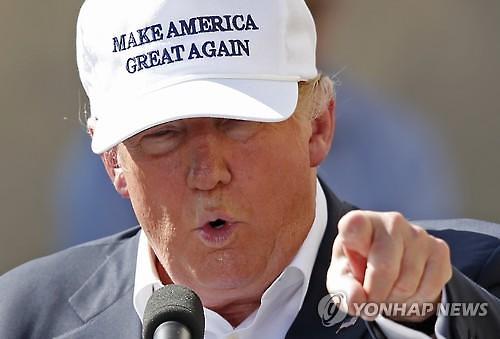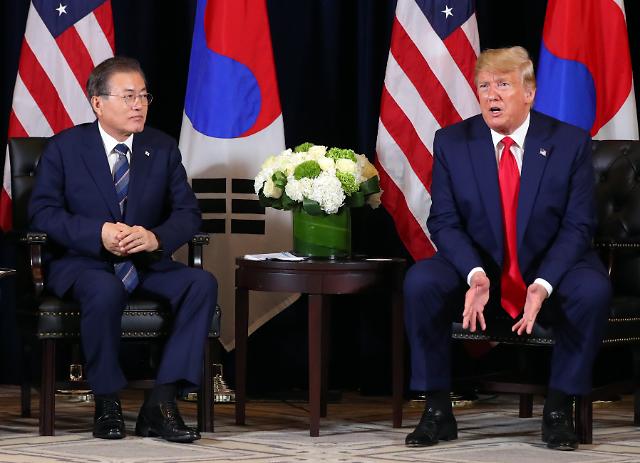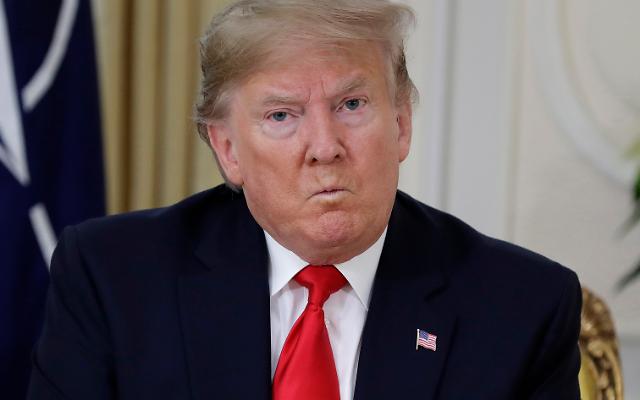
[AP/Yonhap News Photo]
The stunning victory of Donald Trump casts deep uncertainty over US policy on the Korean Peninsula and beyond as he has campaigned on pledges to overhaul the relations with allies and renegotiate trade deals under his "America First" policy, experts said.
"There is obviously going to be a great deal of uncertainty regarding US foreign policy, including in East Asia," said Alan Romberg, a distinguished fellow at the Stimson Center. "While one of the two critical determinants of policy will therefore be in play -- personalities -- the other one will remain unchanged -- national interest."
Trump's campaign has unnerved foreign countries, especially such allies as South Korea and Japan, as he has displayed deeply negative views of US security commitments overseas, contending the United States should stop being the policeman of the world.
The real-estate tycoon has said that the US should be prepared to end protection of allies unless they pay more. He even suggested allowing South Korea and Japan to develop their own nuclear weapons for self-defense so as to reduce U.S. security burdens.
Trump has also blamed free trade deals as a key cause of American economic problems in an attempt to rally support from voters struggling with economic woes. He has denounced the pact with Korea as a "job killing" deal and a "disaster," claiming it ended up increasing US imports from South Korea while failing to increase exports.
"Under Donald Trump, it will be a brave new world because he said a number of things that completely undermine many of our conventional wisdoms about the relationship," Victor Cha, a Georgetown University professor and Korea chair at the Center for Strategic and International Studies (CSIS), said in an interview with Yonhap News Agency.
"He's talked about nuclear weapons for South Korea, ending the free trade agreement, making Korea pay for all the host nation support. ... These are fundamentally new ideas. It will really require a wholesale reevaluation of all of U.S. commitments around the world, because that's essentially what he's signaled during his campaign," he said.
Cha, who served as Asia director at George W. Bush's White House, stressed that alliances amplify US power.
"They amplify the power of the countries we're allied to. So I think that's something that he doesn't really understand because he's never done anything like this before. Having a business partner in China is not like having an ally in Korea or Japan. It's not the same thing," he said.
Despite all such campaign pledges, actual policy could be different.
"One can hope that when Trump learns the full dimension of Korea's contribution to support of the US security presence and understands the significant risks of a significantly altered nuclear policy, he will turn away from his more animated rhetoric during the campaign and face up to the benefits of our alliance," Romberg said.
"That doesn't mean he won't seek more host-nation support, but I don't think he will likely adopt such a radically different approach as he has suggested," he said.
Trump's top foreign policy adviser, Walid Phares, said in a recent interview with Yonhap News Agency earlier this year that Trump's remarks made as a candidate should be taken as an expression of principles, rather than policy, meaning that such extreme scenarios as a troop pullout are only for negotiation purposes.
When it comes to North Korea, Trump has said it's a problem that China should resolve.
But he has also expressed a willingness to negotiate with North Korean leader Kim Jong-un, saying earlier this year: "I would speak to him. I would have no problem speaking to him."
"Trump may try to put more emphasis on negotiations with North Korea, but unless Pyongyang makes some fundamental adjustments in its nuclear weapons program, it is hard to see how Trump can afford to lower the level of military preparedness," Romberg said.
"My sense is that he will also likely maintain the overall sanctions approach, but that will depend on whether the North senses an opportunity to improve its situation by capping its nuclear program with appropriate inspections," he said.
(Yonhap)(END)


![[Coronavirus] Moon receives Trumps request for diagnostic reagents](https://image.ajunews.com/content/image/2020/03/25/20200325142129178702.jpg)

